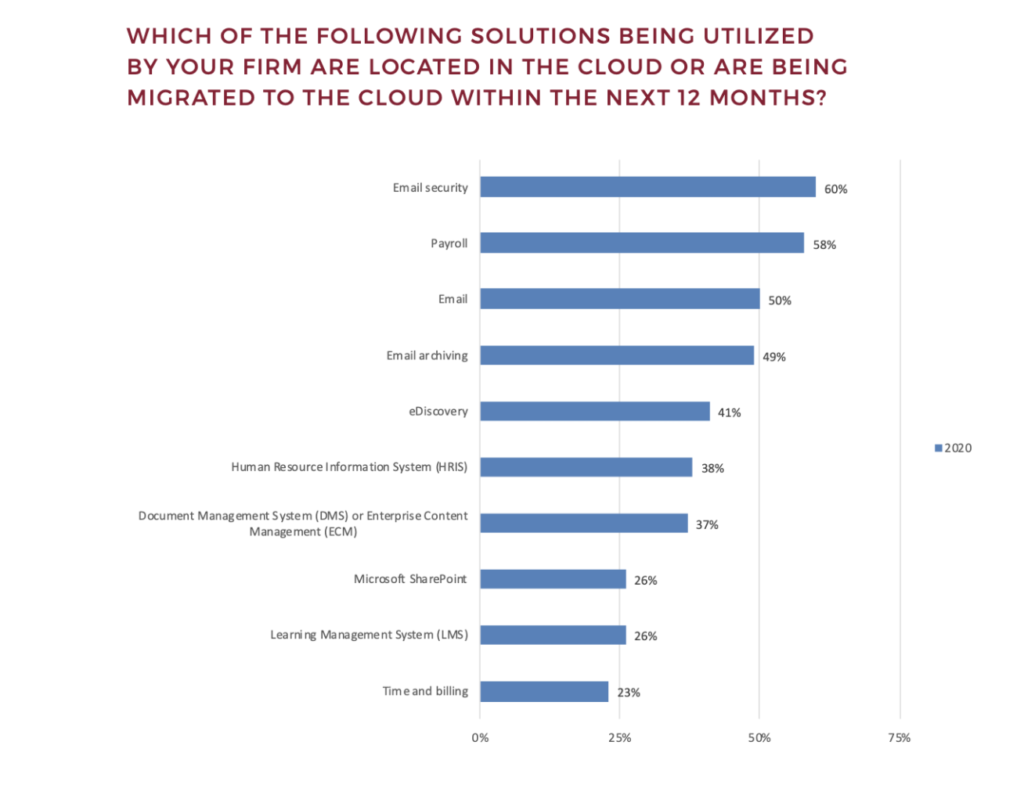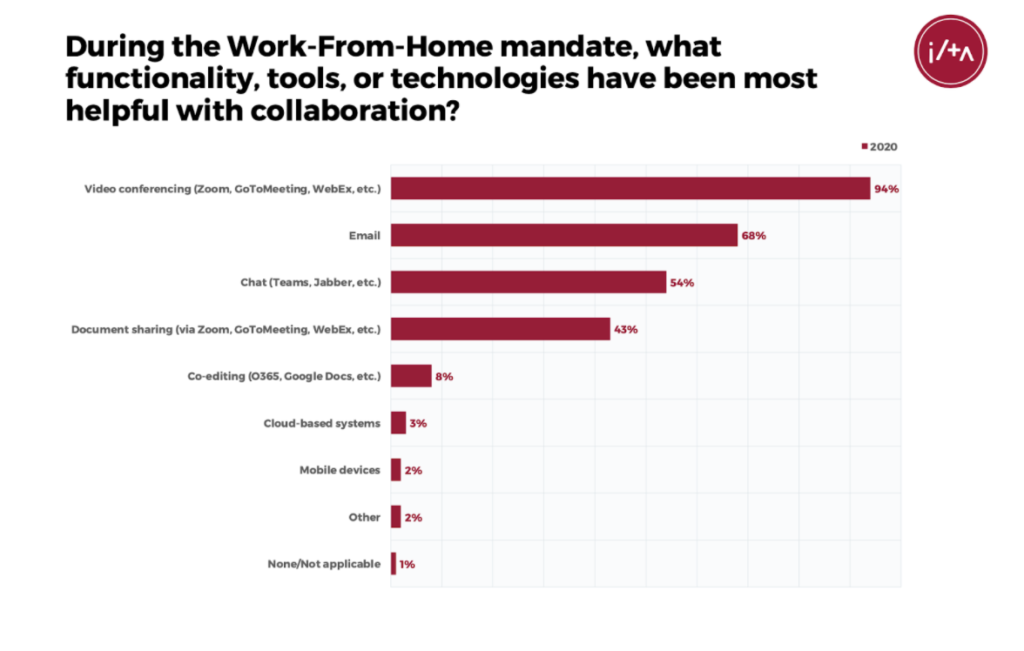Every year the International Legal Technology Association conducts a technology survey of firms of all sizes, and the results always provide lots of interesting data on how lawyers are using technology. This year’s survey was of particular interest due to its timing. Because it was conducted during the first few months of the pandemic, it offers useful insight into COVID-related technology trends, including the ways that law firms are using remote working tools and cloud-based legal software to continue operating despite office closures.
Certainly things have changed since the early months of the pandemic, but the results of this survey are nevertheless interesting and provide insight into how firms are and will be using technology in the months and years to come. So without further ado, here are some of the most relevant statistics from the survey.
Survey Demographics
First, let’s take a look at the demographics of the lawyers surveyed. This year, the demographics consisted of primarily of firms with less than 150 lawyers. Firms with less than 50 lawyers made up nearly one third of respondents (32%), as did firms with 50 – 149 lawyers (34%). Next in line were firms with 150 – 349 lawyers (19%), followed by firms with 350 – 699 attorneys (9%), and finally firms with 700+ lawyers (7%). A grand total of 103,996 lawyers from 470 firms participated in this year’s survey
Cloud philosophy
First, let’s take a look at how the firms surveyed approach cloud technology. Survey respondents were asked how they would describe their firm’s cloud philosophy, and 21% reported that their firms were mostly in the cloud. 35% reported that their firms philosophy was to transition to the cloud with every software upgrade, and 33% shared that their firms were considering the cloud.
These findings are in keeping with recent trends indicating that firm leaders are increasingly likely to view the move to the cloud as inevitable. The shift to remote work because of the effects of COVID-19 only served to accelerate this transition, as explained in the survey report:
“(T)here are a few notable findings and trends worth highlighting. Among them was a slight acceleration of cloud acceptance. Granted, the lockdown encouraged cloud-mindedness – with the workforce scattered across the landscape, we suddenly reflected a hybrid model of private/public cloud – but the sudden jump in some numbers could not have happened in so short a time.”
Cloud usage and future technology purchases
Now that it’s evident that a shift to the cloud is underway, let’s take a look the types of cloud-based software that law firms are using most often. According to the survey results, email security and payroll were at the top of the list. 60% of firms reported that email functions were already in the cloud or would be migrated within the next year, and 58% said the same about payroll. This makes sense, since firms have historically transitioned less critical functions to the cloud first, as they tested the waters and their comfort levels.
However, in the months since this survey was conducted, remote working has become increasingly common due to the uncertainty caused by the pandemic. In order to facilitate a smooth transition to remote work when needed, certain types of cloud-based software have become increasingly popular in recent months. These tools facilitate cloud-based and remote access to case-related information, thus allowing lawyers and staff to work seamlessly and securely from any location.
According to the survey results, at the time of the survey, law firms had plans to migrate certain functions to the cloud or were already using the cloud for the following types of processes: document management (37%), time and billing software (23%), and case management (9%). Undoubtedly those firms intending to migrate functionality to the cloud within the next year have fast-tracked their plans in order to ensure stability throughout the duration of the pandemic.

Most useful tools during the pandemic
Speaking of the pandemic, lawyers were also surveyed about the top remote tools that their law firms were relying on during work-from-home mandates. Not surprisingly, the most popular tools were those that replaced the face-to-face functions that were necessary for work to continue even when employees were displaced from the office (ie. videoconferencing), or tools that offered that functionality that were already in place (ie. email).
According to the results, the most popular technology relied upon during the pandemic has been videoconferencing, with 94% of responding lawyers reporting that their firms used it to facilitate collaboration. Next up was email (68%), followed by chat (54%) and document sharing (43%).
For the smallest firms with 50 lawyers or fewer, the most used technologies during the pandemic were: 1) videoconferencing (91%), email (73%), chat (36%), and document sharing (30%). Notably, although “cloud-based systems” ranked low on the chart below at 4%, I would suggest that it’s due to a lack of comprehension regarding the cloud. since other technologies that ranked higher were, in fact, cloud-based (ie. many email systems, videoconferencing platforms, online chat tools, and online document sharing and collaboration software).

Conclusion
The results of this survey offer further evidence that law firms of all sizes are beginning to see the move to the cloud as inevitable, and many are fast-forwarding that transition due to the pandemic. Also of note is that remote working tools that firms already use or that fill unanticipated remote working gaps are the ones being adopted the quickest right now and that trend will likely continue throughout the pandemic.
Finally, for even data on how law firms are adapting during the pandemic and using technology to ensure success, make sure to check out our most recent survey results.
For a software solution that provides all the features mentioned above, start your free trial with MyCase today, or schedule a demo.
